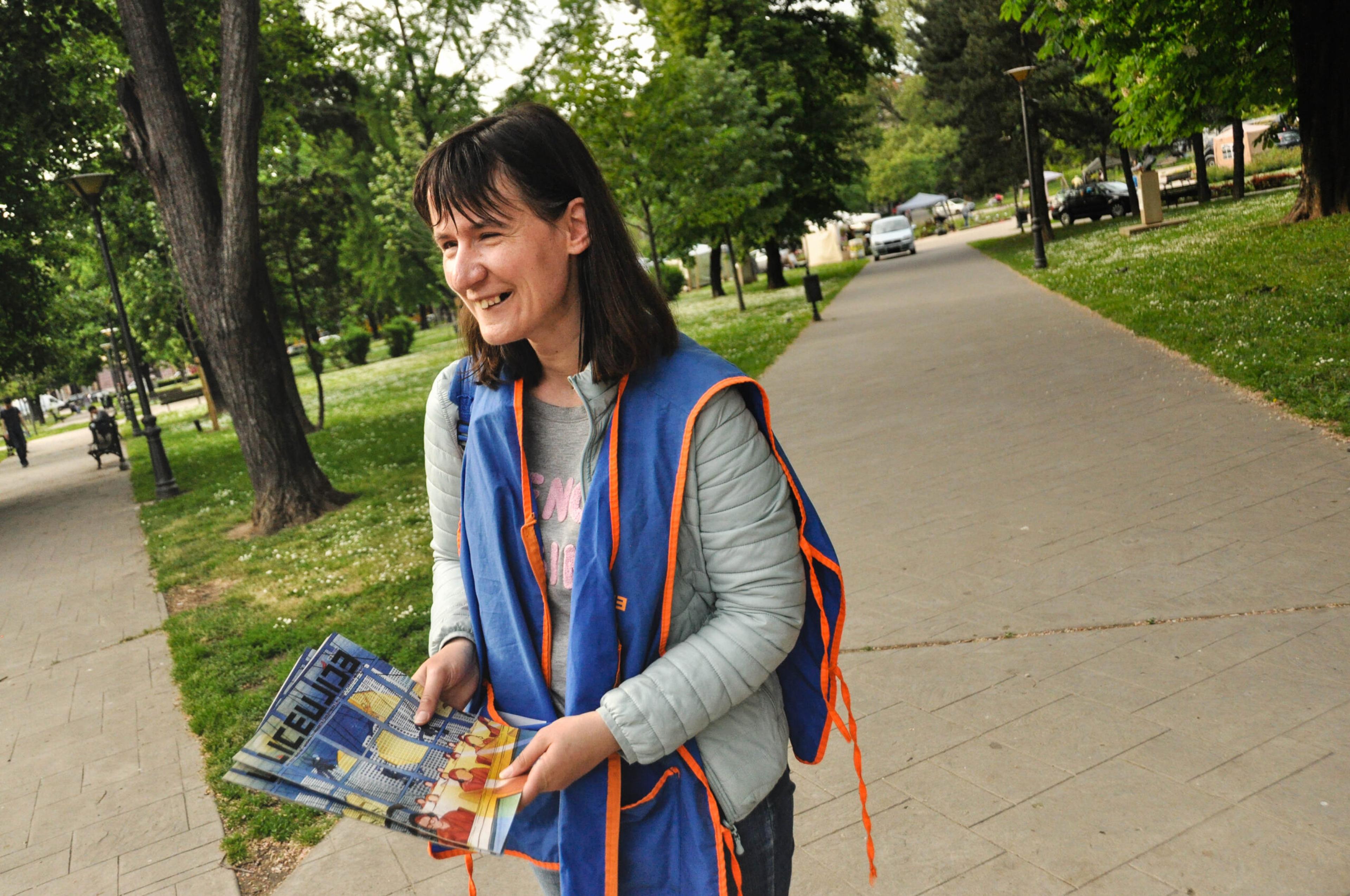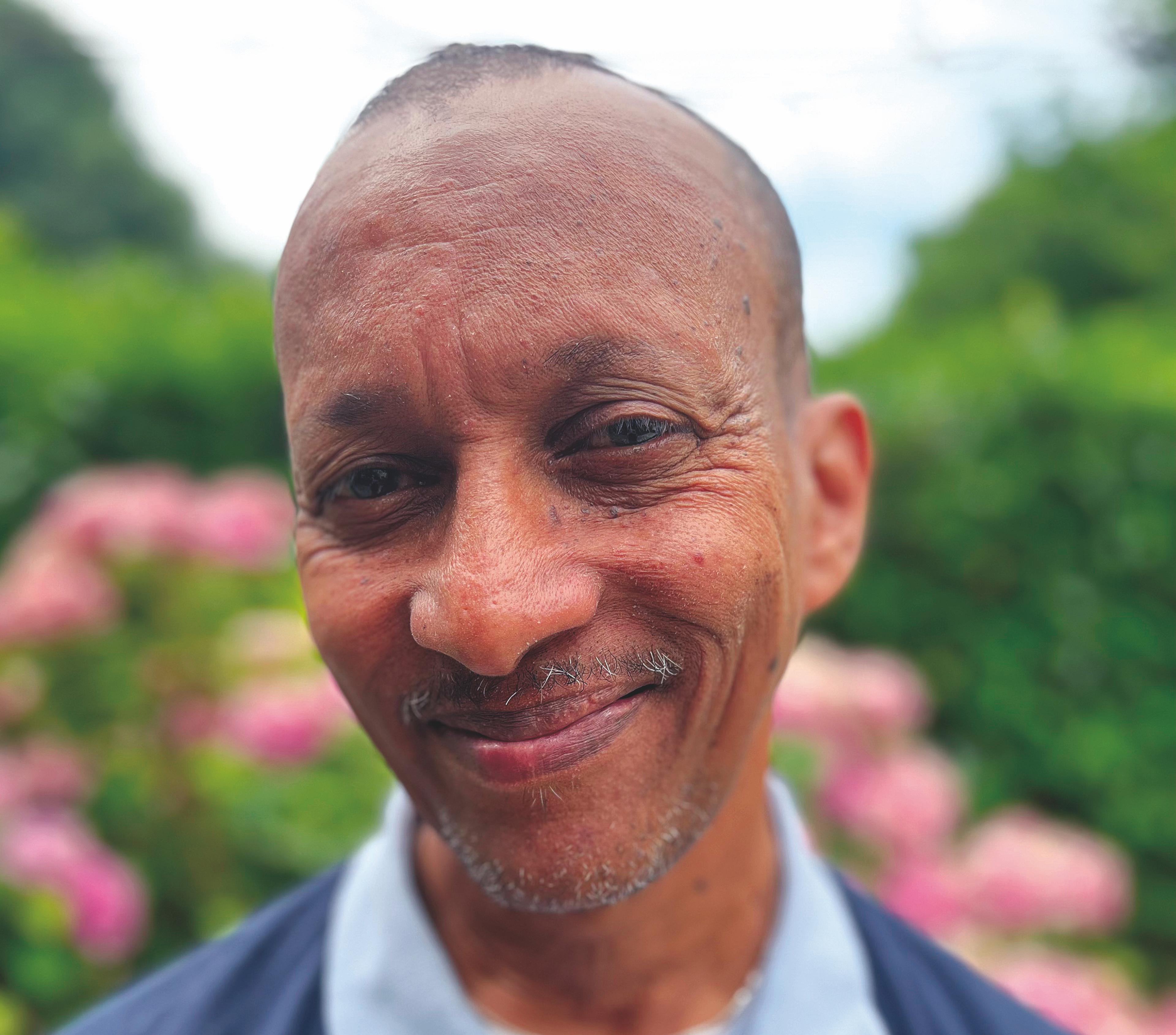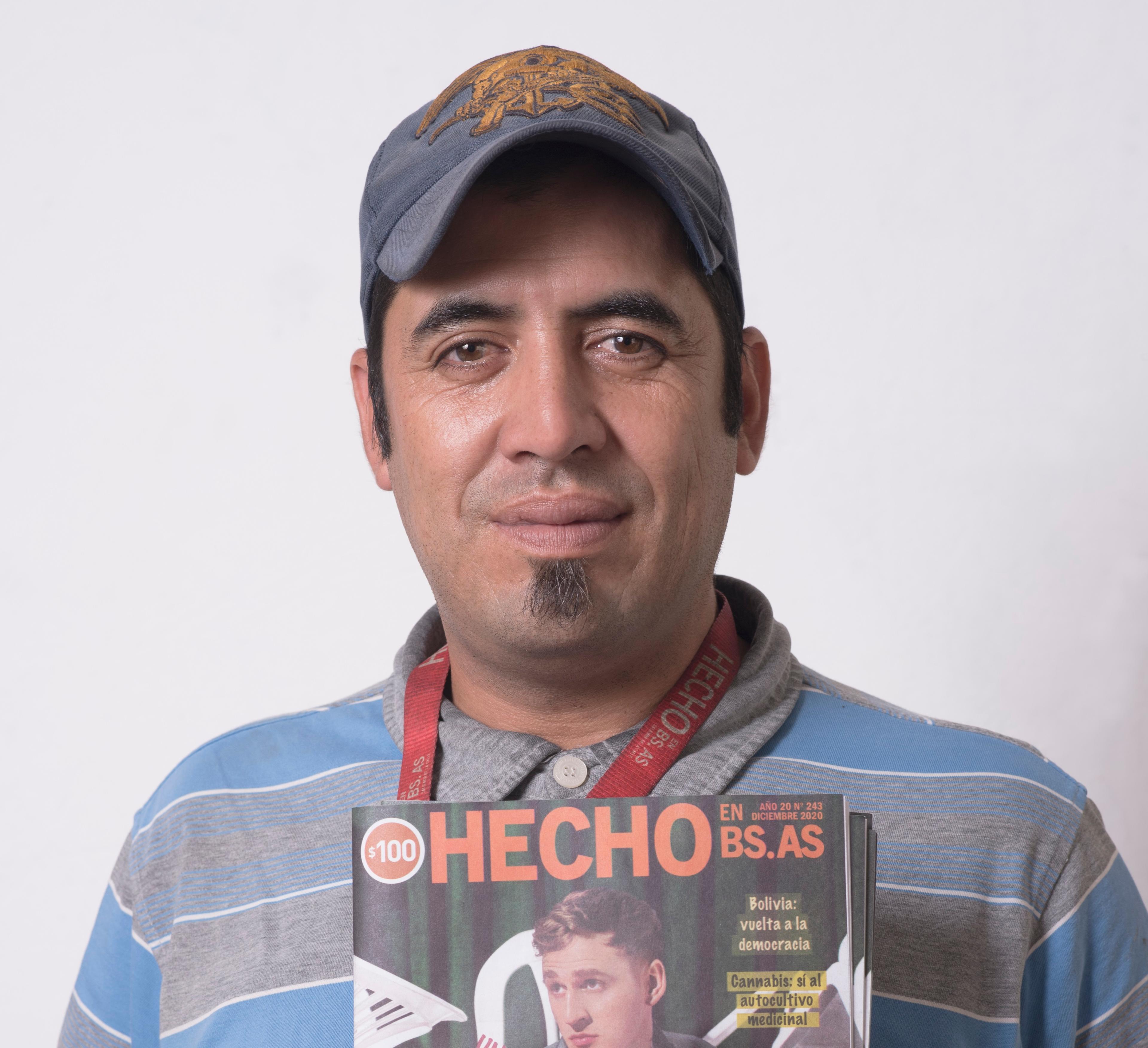Meet Apropos vendor Bobi Onica
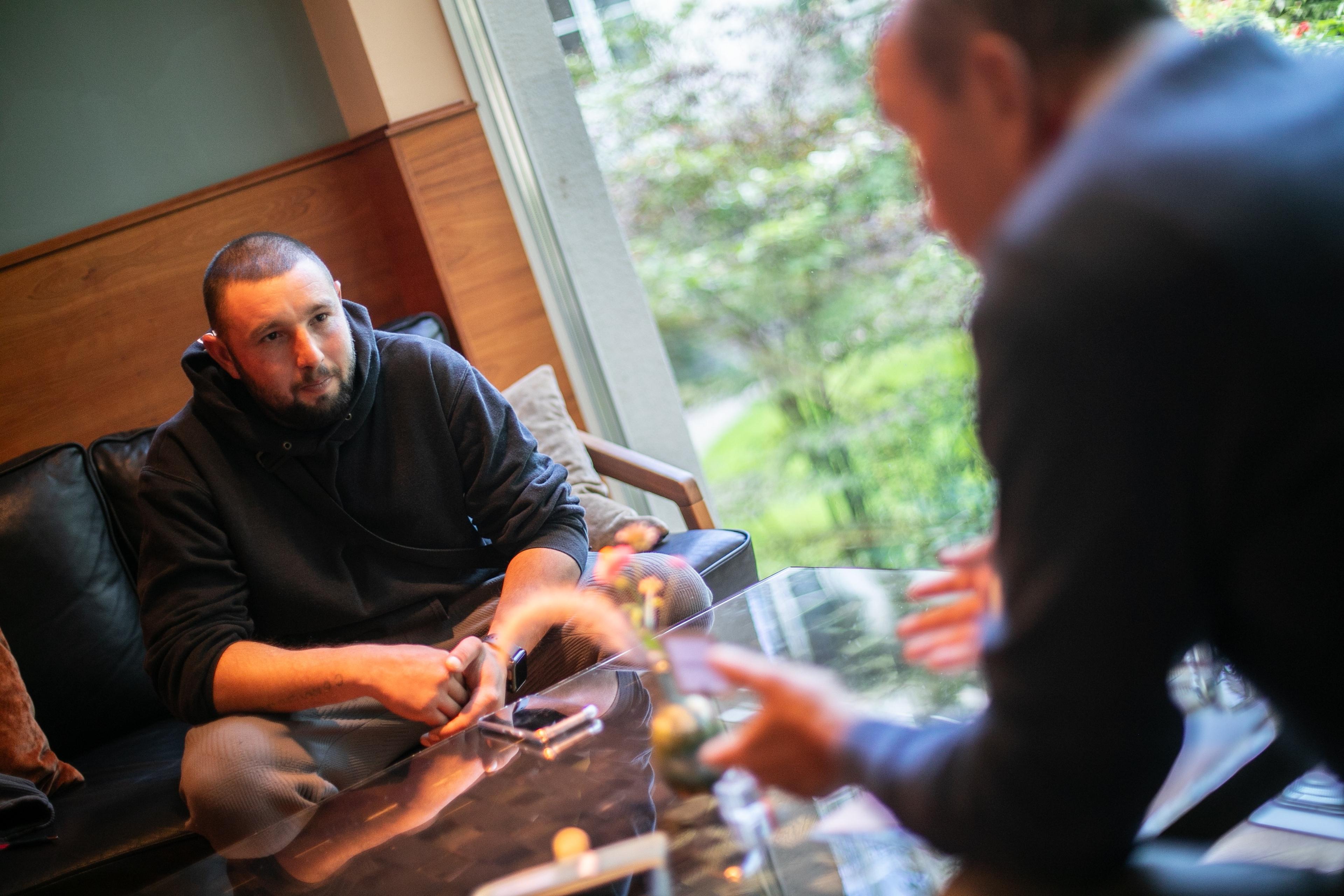
By Anna Pirato
By Klaus Papula
Translated from German via Translators Without Borders
- Vendor stories
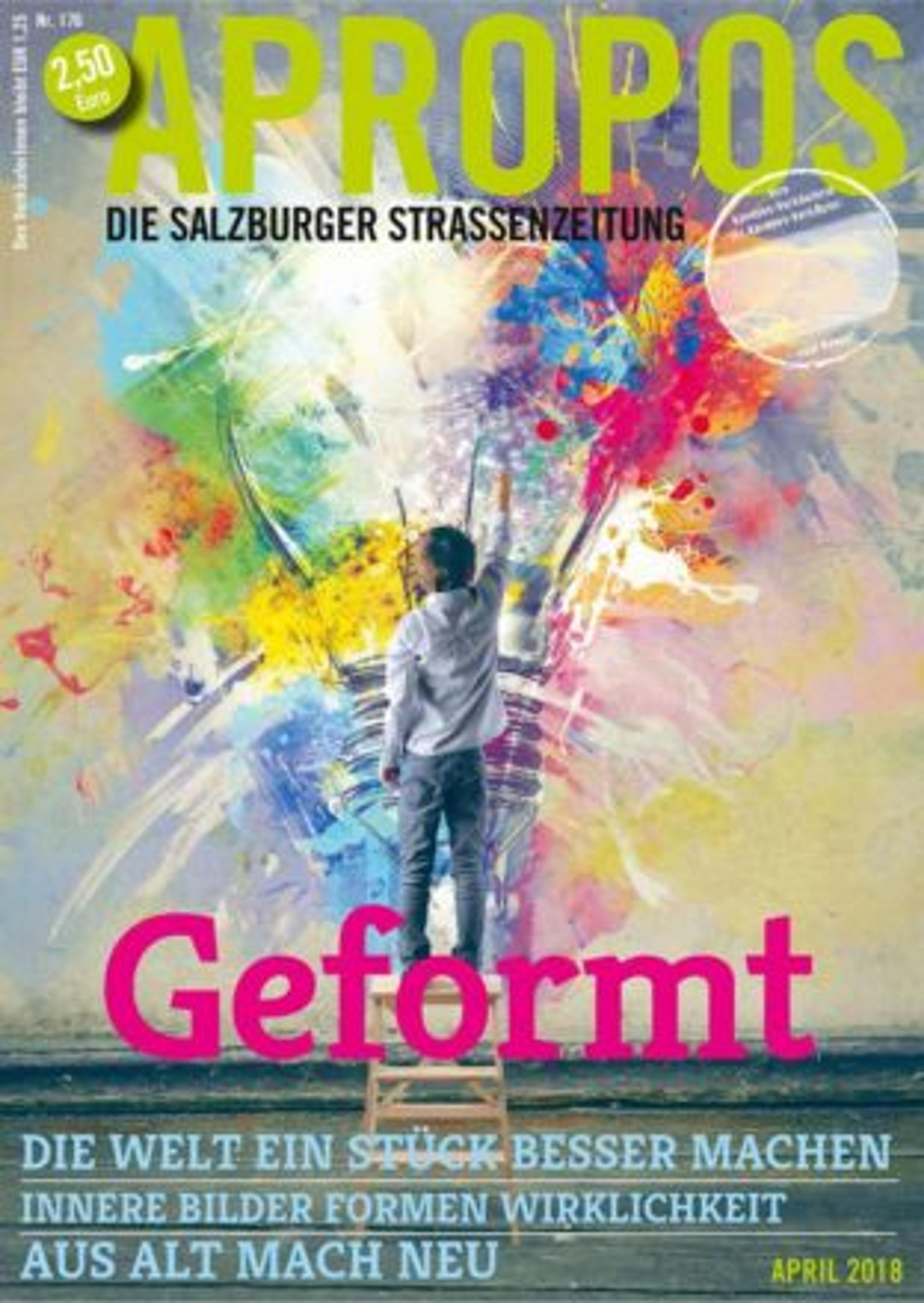
Bobi lets me to see into his world: his family lives in his parents-in-law’s house near Pitești, a small town in Romania where, Bobi explains, Dacia used to produce cars until the plant closed a few years ago. The photo of the house that he shows me depicts a small hut where Bobi and his wife Lorena, their two children Evelina and Raul, and his parents-in-law all live together in close quarters.
There is no running water in the house—water is drawn from the well. The house is in a valley where bears roam around, and sometimes he is afraid that the nearby river will wash the house away during floods, Bobi explains. When he isn’t in Salzburg selling Apropos, he lives in the house.
When a friend brought him to Austria years ago, there was the promise of a good job and a secure income for him, allowing him to provide for his family. But the reality, as quickly became apparent, was different, as there was no permanent job for him anywhere.
Bobi has been an Apropos vendor for five years now, always living in Salzburg for a few months, spending the day on the street selling the paper and sleeping in the emergency shelter, then travelling back to Romania, where he spends a few months with his family until he sets off for Austria again.
His experience of selling the paper is pleasant; he treats people calmly and politely and so people are friendly to him too. He would like to thank Apropos for giving him the opportunity to earn something by selling the paper. Bobi uses the proceeds to keep the wolf from the door, and more than that, his children, aged seven and nine, go to school. They are learning, they can read, they do maths; they will be better off one day. Their life should be different.
Bobi knows what he’s talking about: his childhood was marked by poverty; neither he nor his three siblings were able to attend school as there was not enough money. Bobi cannot read nor write.
If you are unable to write, your life chances are slim. Illiteracy hinders job-hunting, getting a driving licence, and getting ahead in life in general. Bobi would like to learn to read and write, but the opportunities are not available. He wants his children to have an easier life: that is why he keeps travelling to Austria, even though saying goodbye is painful.
He talks to his children and wife every day by phone. When he returns to Romania and his children run to greet him and hug him, his hardships are forgotten. Bobi them the things that he has brought for them: sweets, clothes and shoes. The children are proud of their father, and he is proud of his children, who fulfil his expectations and give meaning to his actions. You can see it in his face: “Evelina and Raul are good in school; they both read very well,” he says with a smile.
What does Bobi dream of? There is the hope that someday, he will leave his cramped conditions behind and live in his own little house with his wife and children. “That’s why money is important,” he says, “but there are also other important things in life”—his children’s health and education, fewer worries and the security of being able to feed his family; that would be at the top of the list.
If he were president, he would endeavour to ensure that everyone was allowed to work and could find it and feed their families.
Bobi always answers my questions with a friendly smile, so I ask him if he is a happy person. Yes, he says, he likes to laugh, because what good would it do if he didn’t? “Does it make the situation any better? Would it make me worry less? No, it would not, so I prefer to laugh, it’s better.”
That makes sense to me, and I ask him what he would say to a sad person. “God helps, and a big heart helps. Life isn’t hard. Life is good,” he says.
